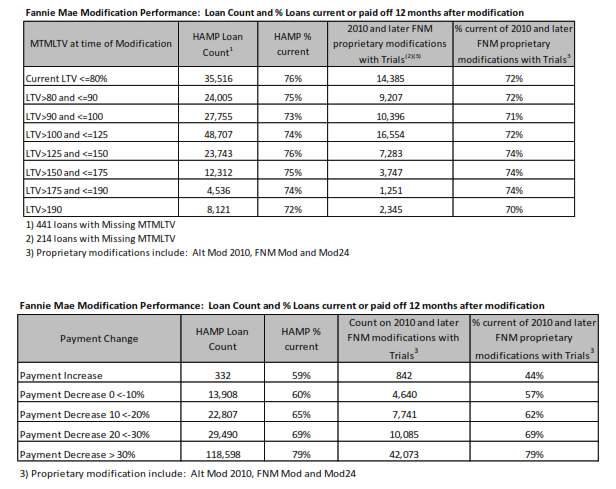Housing and Urban Development Secretary Shaun Donovan told a Congressional hearing on "Perspectives on the Health of the FHA Single-family Insurance Fund" this morning that FHA may need to raise its premiums for some borrowers if economic conditions worsen.
The Secretary said that any negative changes in 2012 that eroded the value of the FHA's portfolio by anything more than $7 billion would require further steps to shore up FHA's cash reserve. An audit of the agency released on November 15 showed that FHA's reserves had fallen 45 percent over the last year to $2.6 billion. FHA is mandated by Congress to maintain a minimum balance (the ratio of economic value to insurance-in-force) in the Fund of 2 percent. The audit found the current reserves are now at 0.24 percent. The Fund first fell below the required minimum in 2009 and FHA took a number of steps to reduce its risk and bolster the fund including increasing both upfront and annual premiums for FHA guarantees earlier this year.
"While the fund has remained positive," Donovan said, "we are keenly aware of the importance of remaining vigilant to the risks the agency faces and will continue to take the actions necessary to protect the fund and taxpayers."
Mathew J. Sciré, FHA's Director of Financial Markets and Community Investment used a summary of two reports on FHA's oversight capability and on the condition of the Mutual Mortgage Insurance Fund conducted by the Government Accountability Office in his testimony before the committee. The reports pointed to some of the difficulties FHA has confronted in righting the condition of the Fund.
While the fund, for the third consecutive year, has not met the statutory minimum because of higher-than-expected defaults, claims, and losses, at the same time, the other component of the ratio, the amount of insurance in force, has grown rapidly. The Fund's condition has also worsened from a budgetary perspective, with balances in its capital reserve account reaching new lows. If the account were depleted, FHA would require more funds to help cover costs on insurance issued to date.
The report says that, while FHA has taken necessary steps to improve the Fund's financial condition, it has not yet addressed GAO's 2010 recommendation for improving the reliability of its estimates, continuing to rely on a single economic forecast that does not fully account for house price and interest rate variability. What is needed to improve the reliability of its capital ratio estimates is an approach that would simulate hundreds of paths that the two variables might follow.
For example, FHA's latest report to Congress sets forth a scenario where, if a decline in house prices in 2012 matched that in 2011, new lows would not generate sufficient net receipts to offset any potential decline in the value of the current portfolio and would necessitate assistance from the Department of the Treasury. If prices should decline by 13.7 percent in 2011 rather than the 5.6 percent assumed in the forecast FHA might require $13 billion in Treasury assistance.
FHA has hired a consultant to recommend best practices and plans to charter committees to evaluate risks at enterprise-wide and programmatic levels and has taken other steps to evaluate risks. However FHA lacks assurance that it has identified all risks. Further, human capital presents other challenges; the agency has not created a systematic workforce plan to identify critical skills. This is of particular urgency as FHA is facing the retirement of a high percentage of its staff in the near term.
In addition, contrary to HUD guidance, the Single Family Housing unit has not conducted an annual systematic review of risks to its program since 2009 and administrative functions and current assessment efforts do not include procedures for anticipating potential risks presented by changing conditions.
Henry V. Cunningham Jr., a member of the Mortgage Bankers Association (MBA) Board of Directors also testified before the committee. He told the members the FHA is at a crossroads. Once considered irrelevant, the agency is now providing much-needed liquidity as private capital has taken a "prolonged retreat. Cunningham said "I think it is fair to say that the housing recovery, although fragile, would not have taken place without FHA."
The agency's single family programs, however, Cunningham said, have not been immune to the disruptions that have roiled the market. He pointed to steps that both Congress and FHA had put in place to better allow the agency to manage its risk exposure including the termination of the failed seller-funded downpayment assistance programs as well as raising the premiums and increasing the credit requirements to qualify for the lowest levels of downpayment.
Cunningham said that while these steps have proven successful, FHA is not out of the woods. One thing that needs to be done is "getting the Qualified Residential Mortgage (QRM) rule right. As it's currently proposed, the rule would require a 20 percent downpayment to obtain a QRM, while FHA requires just 3.5 percent." This appears to conflict directly with efforts by Congress and the administration to reform the housing finance system, making it more difficult for private capital to reenter the market.
There is also a need to revitalize the secondary mortgage market, he said. He referred to a plan put forward by MBA suggesting a framework for a limited, clearly defined government role in the single and multifamily mortgage markets.








